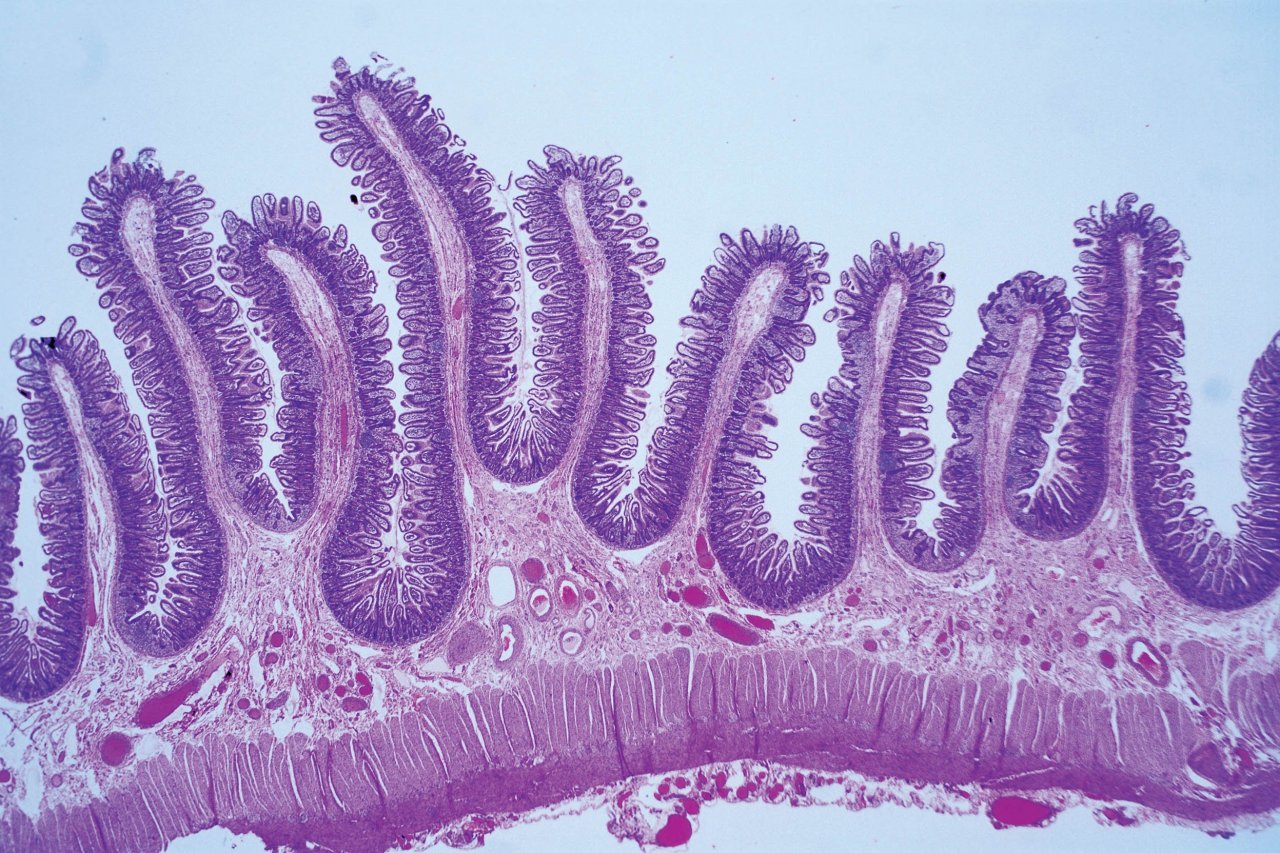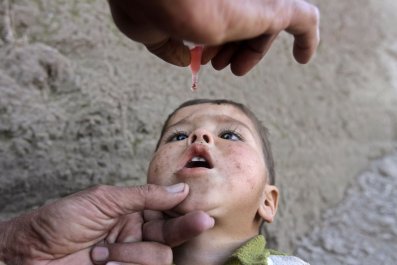When you think of a virus, chances are pretty high that the likes of Ebola and influenza come to mind. But not all viruses are disease-causing scourges; new evidence suggests that some may even be beneficial.
In a study published this month in the journal Nature, researchers were able to strengthen the immune system of mice and partially heal damaged intestines by exposing them to a virus. This and other recent work suggests that viruses are an important part of the gut microbiota, the conglomeration of trillions of microbes that live in your intestines and help digest food and regulate your immune system.
"We're really excited about this is because it's the first example of an animal virus that behaves like friendly bacteria in the gut," says study author Kenneth Cadwell, a virologist at New York University. In the study, researchers raised mice in a sterile environment in which they weren't exposed to the healthy bacteria that normally live in the intestines. As a result, these microbe-starved mice developed abnormal intestines with a sparse covering of villi, the finger-like projections of tissue involved in absorbing nutrients in healthy animals. They also had weakened immune systems, Cadwell says.
Scientists then exposed the mice to the murine norovirus, which is related to a human pathogen that can cause diarrhea and vomiting. In the mice, though, it had no such effects. In fact, the virus appeared to stimulate the immune system and repair much of the damage that the mice's sterile environment had done to the intestines. In short, this one virus caused them to resemble healthy mice, except they had no healthy intestinal flora.
"This shows how one single virus can substitute for the beneficial effects normally provided by an [enormous] group of gut bacteria," says Stephanie Karst, a virologist at the University of Florida who wasn't involved in the study. "That's very remarkable from my point of view."
The finding raises the possibility that one day beneficial viruses could be used in ways similar to how we now use probiotics (which contain commensal, or "beneficial," bacteria), Karst tells Newsweek. Or, more likely, it could lead to the development of pharmaceuticals to stimulate the immune system in the same way as beneficial viruses do. Cadwell thinks the improvement seen in the mice is a result of the body's immune response to the virus, as opposed to the virus itself, and he and his team are still trying to understand how this biochemical process plays out. "We could create a drug that hits what's right downstream from the viral infection," he says.
But until that day, "I don't want anybody to think you should infect yourself with any known virus at the moment," he says, laughing.




























